

Why A Fake Article Titled “Cuckoo for Cocoa Puffs?” Was Accepted By 17 Medical Journals. Controversy in Ethics of Obedience Research. Controversy: Ethics in ExperimentsPsychological Harm and Informed Consent This experiment led the American Psychological Association to carefully review its human subject procedures.
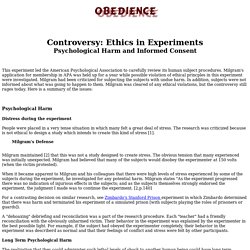
Feedback & Opinions on Workplace Trust. The best workplaces understand the factors that are truly valued by their people.
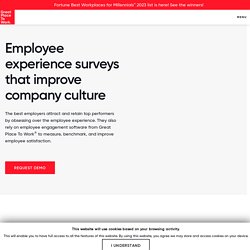
They perpetuate policies, practices and behaviors that strengthen the employee-manager relationship. Employee retention improves, mitigating the costs of continual re-hiring of personnel. Great Place to Work’s® expertise in organizational culture and leadership coaching helps transform companies into great workplaces by uncovering areas of improvement and by helping companies to develop practices, policies and behaviors that build credibility, respect and fairness into the culture of the workplace. Trust Index© Employee Survey What are your employees' perceptions of your workplace? The Trust Index© Employee Survey is the most extensive employee survey in corporate America and is the primary research tool for assessing and rating organizations that appear on the annual FORTUNE 100 Best Companies to Work For list.
Workplace Culture Assessment. Blackboard Learn. Online MMPI Test. Microsoft Word - MHS-Preparing for Court Testimony Guide.doc - courttestimony.pdf. All MMPI-2 questions + HTML script for browser-based scoring. Microsoft Word - MHS-Preparing for Court Testimony Guide.doc - courttestimony.pdf.
Science Works! Scientific Theory Explained. Feynman Chaser - The Key to Science. Allegory of the Cave. Plato realizes that the general run of humankind can think, and speak, etc., without (so far as they acknowledge) any awareness of his realm of Forms.
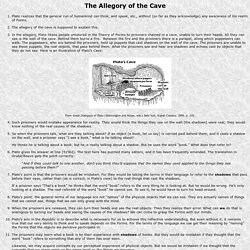
Aristotle & Science. Aristotle was born in Stagira in north Greece, the son of Nichomachus, the court physician to the Macedonian royal family.
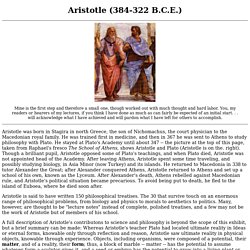
He was trained first in medicine, and then in 367 he was sent to Athens to study philosophy with Plato. He stayed at Plato's Academy until about 347 -- the picture at the top of this page, taken from Raphael's fresco The School of Athens, shows Aristotle and Plato (Aristotle is on the. right). Though a brilliant pupil, Aristotle opposed some of Plato's teachings, and when Plato died, Aristotle was not appointed head of the Academy. After leaving Athens, Aristotle spent some time traveling, and possibly studying biology, in Asia Minor (now Turkey) and its islands.
Sir Karl Popper "Science as Falsification," 1963. Rationalism vs. Empiricism. 1.
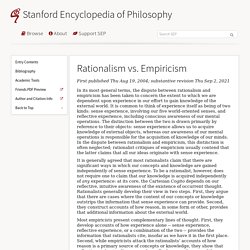
Introduction The dispute between rationalism and empiricism takes place within epistemology, the branch of philosophy devoted to studying the nature, sources and limits of knowledge. Ontology: Theory and History from a Philosophical Perspective. A Priori versus Empirical Reasoning. "In times of change learners inherit the earth; while the learned find themselves beautifully equipped to deal with a world that no longer exists.
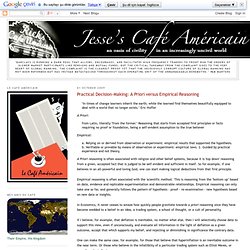
" Eric Hoffer A Priori: A priori. The term a priori is used in philosophy to indicate deductive reasoning.
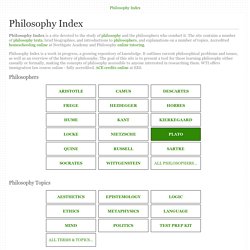
The term is Latin, meaning “from what comes before”, refering to that which comes before experience. Kant, Immanuel: Metaphysics [Internet Encyclopedia of Philosophy] Immanuel Kant (1724-1804) is one of the most influential philosophers in the history of Western philosophy. His contributions to metaphysics, epistemology, ethics, and aesthetics have had a profound impact on almost every philosophical movement that followed him. This article focuses on his metaphysics and epistemology in one of his most important works, The Critique of Pure Reason.
A large part of Kant’s work addresses the question “What can we know?” The answer, if it can be stated simply, is that our knowledge is constrained to mathematics and the science of the natural, empirical world. Epistemology [Internet Encyclopedia of Philosophy] Epistemology is the study of knowledge.
![Epistemology [Internet Encyclopedia of Philosophy]](http://cdn.pearltrees.com/s/pic/th/epistemology-87616055)
Epistemologists concern themselves with a number of tasks, which we might sort into two categories. Placebo & Replicating All Psychology Experiments. Main -> In the News: Research Methods.
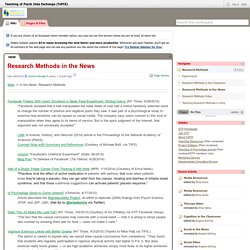
APAFormatTemplate.doc. Ten Simple Rules for Writing a Literature Review. Citation: Pautasso M (2013) Ten Simple Rules for Writing a Literature Review. PLoS Comput Biol 9(7): e1003149. doi:10.1371/journal.pcbi.1003149 Editor: Philip E. Bourne, University of California San Diego, United States of America Published: July 18, 2013 Copyright: © 2013 Marco Pautasso. Logic in Argumentative Writing. Summary:
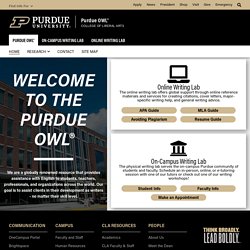
Free Research Methods Textbook. A Strong Hypothesis - Science Buddies Blog. "If _____[I do this] _____, then _____[this]_____ will happen. " Sound familiar? It should. This formulaic approach to making a statement about what you "think" will happen is the basis of most science fair projects and much scientific exploration.
Step by Step You can see from the basic outline of the Scientific Method below that writing your hypothesis comes early in the process: Ask a Question Do Background Research Construct a Hypothesis Test Your Hypothesis by Doing an Experiment Analyze Your Data and Draw a Conclusion Communicate Your Results Following the scientific method, we come up with a question that we want to answer, we do some initial research, and then before we set out to answer the question by performing an experiment and observing what happens, we first clearly identify what we "think" will happen. Mullet Ratio for Statistics.